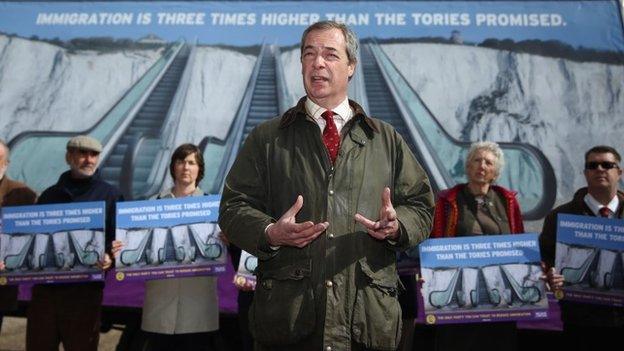Election 2015: Labour pledges prompt immigration action
- Published
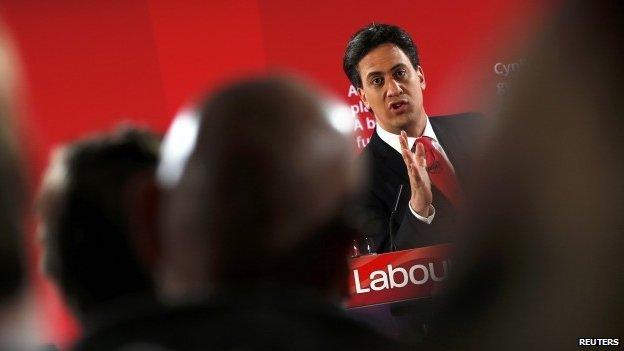
Mr Miliband challenged the Conservatives to match his commitments on immigration
Labour will set out a "credible" set of measures on immigration within 100 days of taking office, Ed Miliband has said.
Speaking in Barry, he pledged to recruit an extra 1,000 border staff, introduce full exit checks and stop serious criminals coming to the UK.
The Labour leader challenged David Cameron to match his pledges, accusing him of "abandoning the issue to UKIP".
A Conservative spokesman said they would control immigration by reforming welfare and tackling criminality.
'Damaged faith'
At an event in the Vale of Glamorgan, Mr Miliband said immigration has benefited Britain and promised he will never "do anything to denigrate or demean the contribution of people who have come to this country".
But he said Labour had changed its approach under his leadership and would "deal with people's concerns" about the impact of immigration on wages and public services.
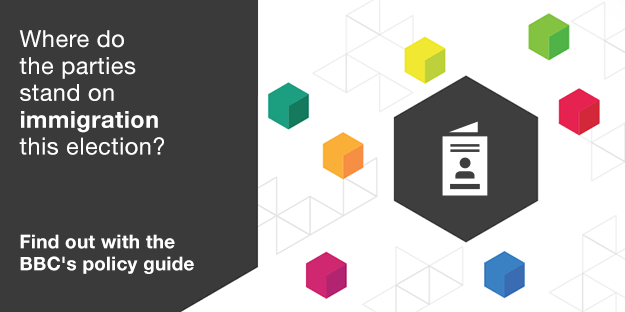
Q&A: Background to the election immigration debate
Attacking the government's record, Mr Miliband said: "David Cameron once promised to cut net immigration to tens of thousands and told people to throw him out of office if he didn't deliver. He has broken that promise, with net migration standing at 298,000.
"Nothing damages people's faith in politics more than broken promises like that."
Labour would only make "credible" promises it can keep, he told activists, saying an Immigration Bill would feature in its first Queen's Speech.
"If I am prime minister we will begin work immediately to fix our immigration system with a plan founded on fair rules, where wages can't be undercut and benefits must be earned; a plan where our borders and our communities are strengthened," Mr Miliband said.
Other steps the party says it will take in the first 100 days of government include ending the indefinite detention of asylum seekers and banning recruitment agencies from hiring solely from overseas.
'Credible plan'
The party will also pledge to close loopholes it says allow employers to undercut wages and stop people claiming benefits for at least two years when they move to the UK from abroad.
Speaking during a Daily Politics debate on Monday, Home Secretary Theresa May admitted her party had failed to honour its pledge, made before the 2010 election, to get net migration down to below 100,000.
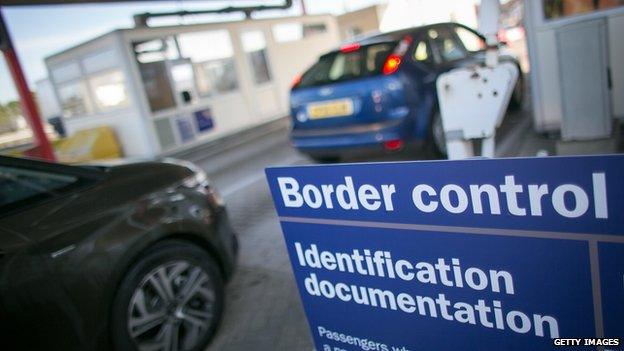
Net migration fell in the early years of the coalition government but has since risen
But she added: "We've actually shown that we have made some changes to the immigration system.
"And crucially we have set out a credible plan for what we would do for the future, in terms of tightening up, not just on EU immigration but also on people from outside the EU."
A Conservative spokesman said: "The Conservatives have a plan to control immigration and build a system that puts the British people first. We will regain control of EU migration by reforming welfare rules, tackle criminality and abuse of free movement and cut immigration from outside the EU."
'Open door'
UKIP said Labour could not be trusted on the issue, given the party's record in office.
"They opened the doors to millions of migrants in 1998, deliberately," the party's deputy chair Suzanne Evans said.
"They shamelessly used race and religion as incitements to get people to vote for the Labour Party. Any pledges they make on immigration are frankly laughable. I simply don't believe that they want to control immigration."
By leaving the EU, removing the entitlement to free movement, and using an Australian-style points system to select migrants with skills and attributes needed in the UK, UKIP says annual net migration can be brought back to a "normal level" of about 50,000.
The Liberal Democrats said in their manifesto that they would allow high-skill immigration to support key sectors of the economy.
Also speaking on Monday, former Home Office minister Norman Baker said he believed current levels of net migration were probably too high but a target to reduce the figure to the tens of thousands was "non-deliverable".
- Published26 February 2015
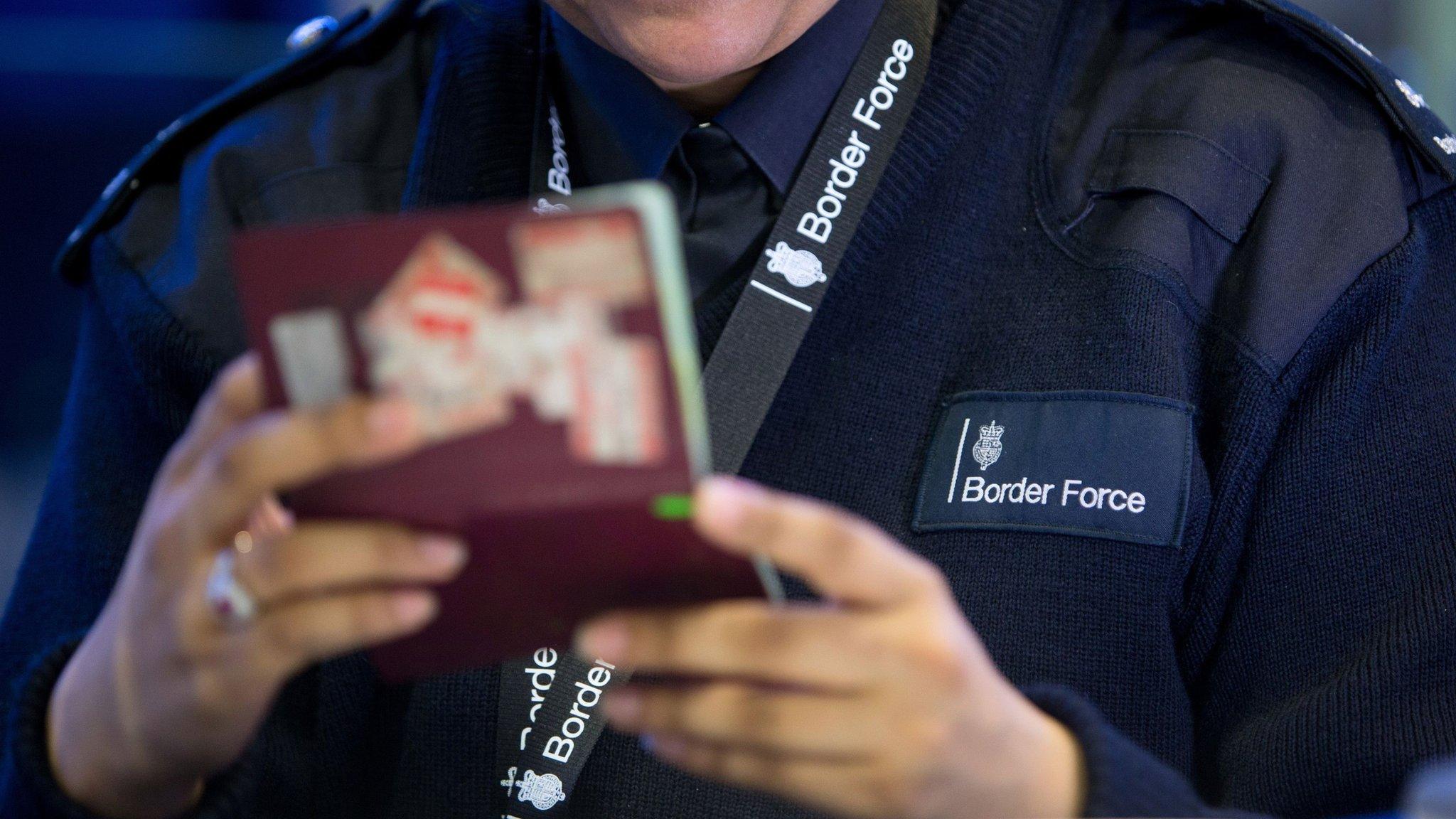
- Published31 March 2015
